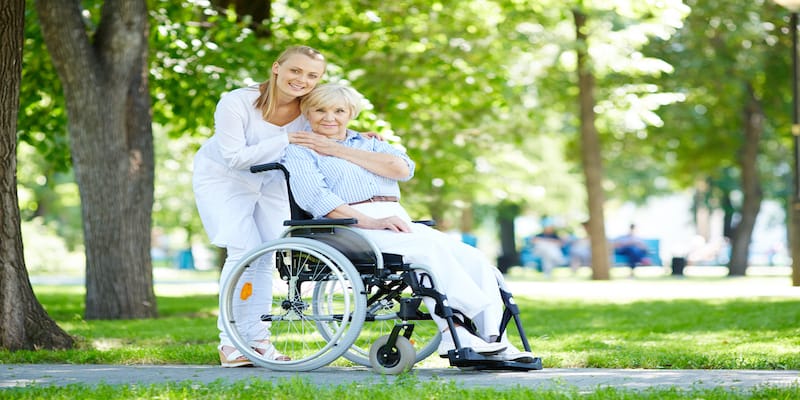When you own and operate a wheelchair, there are many things to keep in mind. You need a chair that fits both your body and your daily needs. Just as each person is different, so are their needs when it comes to finding the right chair or mobility scooter.
However, even with the perfect chair, there’s always the risk of developing pressure sores if you’re unable to shift from time to time to give certain parts of your body a break. In this article we’ll discuss what causes pressure sores and what you can do to prevent them, no matter what chair you’re in:
What Causes Pressure Sores?
If you’re familiar with life in a wheelchair, you’re aware of the potential for developing pressure sores or ulcers. Though you may have heard of them, you might not know what can cause them. Pressure sores or ulcers are, in the simplest terms, damaged skin resulting from a position held too long due to limited mobility. These sores most commonly occur on spots on the body that are bony and don’t have a lot of excess tissue to cushion them (think elbows, heels, and the backside).
Pressure sores from wheelchairs can be caused by too much external pressure applied to a specific body part. They can also be the result of friction that damages the blood vessels just under the skin. Sometimes these ulcers are the result of “shearing” which is when the skin rubs so much that it separates from the underlying tissue. Moisture is also a common culprit.
Once pressure sores have developed, they can be difficult to heal. Thankfully there are a number of treatment efforts that can diminish the risk of development.
Suitable Seat Cushions
Early prevention is crucial in avoiding serious pressure sores and the accompanying infection that often occurs. One of the best products to use to reduce the risk of developing these ulcers is a well-made wheelchair seat cushion. There are many such cushions available and they serve to absorb the brunt of the body’s weight.
For those who only use their wheelchair for short periods of time, a basic foam pad cushion should do the trick. Those who spend extended periods of time in their chairs should look for a cushion with air bladders to help disperse their weight and minimize any pressure points.
There are many different sizes and types of cushions for wheelchair users of varying weight and personal preferences.
Full Reclining/Tilt-in-Space Wheelchairs
The type of wheelchair you use can be instrumental in preventing pressure ulcers. The best way to avoid these types of sores is to shift your position frequently, so opting for a wheelchair that allows you to shift positions with ease is preferred.
Tilt-in-space wheelchairs and full reclining wheelchairs allow for this shift in pressure points so that there isn’t only one spot on your backside that is always bearing your body weight. Even a small shift of a few degrees can be effective in minimizing the risk of developing pressure ulcers.
Heel Pads and Cushions
One of the most vulnerable spots of a wheelchair user’s body is their heels. The heels are bony and endure a lot of pressure which, over time, can cause sores. By using heel pads or cushions to protect these delicate areas, you can prevent the development of unwanted pressure sores.
Elbow Protectors
Another bony area of the body that tends to develop sores is the elbow. When sitting in a wheelchair, the elbows are constantly in contact with the armrest and arm trough. The skin covering the elbow rubs back and forth over the armrest. This friction can lead to sores. By adding some extra cushion, you can further protect against the development of painful ulcers.
Back Cushions
Your back is in constant contact with the back of the wheelchair while you’re in it. The right wheelchair back cushion can make a big difference. Cushions can vary in material and thickness and serve to minimize pressure on the shoulders and back. Make sure you’ve got a cushion that keeps your shoulder blades and spine from rubbing against the back of your chair. Good padding in place can keep pressure sores away.
Lotion
Another way to protect your skin from sores is keeping it well moisturized and soft. Skin that is cracked and dry is more susceptible to developing sores. Lotions that include lanolin or aloe are particularly good at protecting the skin as are those that contain Vitamin E.
Allow Us to Help
If you have questions and concerns about picking the chair that will best suit your needs and allow you to avoid pressure sores, we’re here to help you. We offer a wide variety of power chairs, rehab chairs, and mobility scooters to our many customers who trust us to assist them in such an important purchase.
We want to do the same for you. Contact us to learn more about our products and services. We’re also here to assist with any chair repairs or questions about coverage. We look forward to hearing from you.

